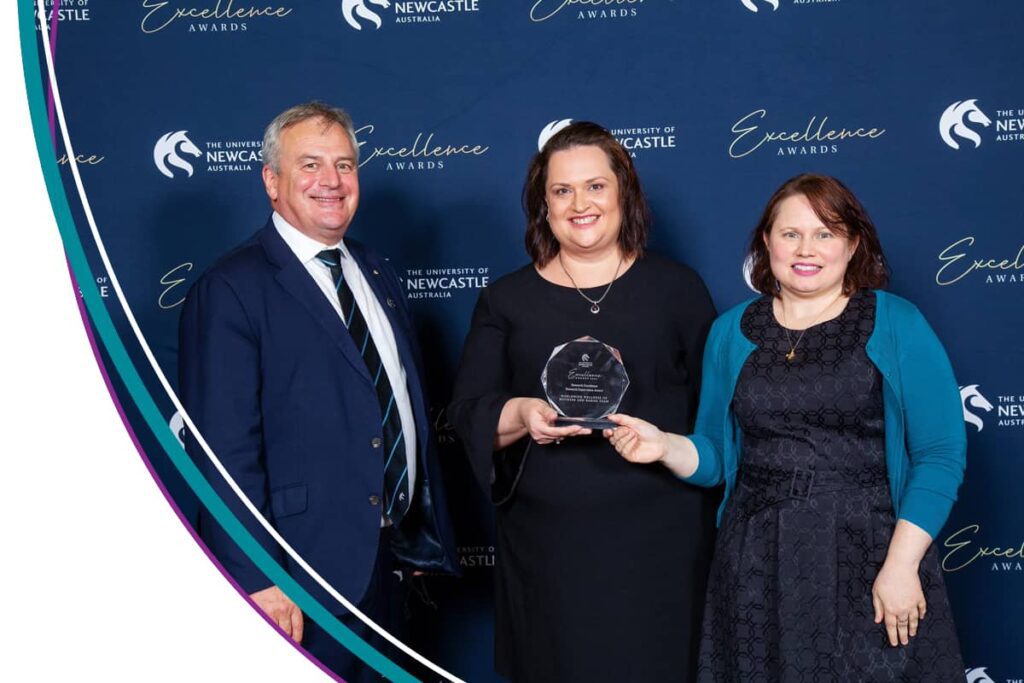The Worldwide Wellness of Mothers and Babies (WWOMB) program strives to generate new knowledge about maternal and infant wellbeing around the globe.
Health Service Use
Violence & Adverse Childhood Experiences
Chronic Health, including Mental Health
The vision of WWOMB is to eliminate preventable maternal and infant mortality and morbidity.
Attention is focused on family planning, maternal health and infant health as key areas, with conception, labour and delivery as critical points in the pathway.
Health service utilisation, violence against women and chronic disease are cross-cutting themes across the program.
Program Leads

Contraceptive use and family planning
Lead: Dr Melissa Harris
The United Nations Population Fund (UNFPA) reports that access to contraception could prevent over half a million infant and 150,000 maternal deaths. Contraceptive access promotes autonomy for women and prevents unsafe abortion and high-risk pregnancies. Yet the World Health Organisation (WHO) estimates an unmet need for contraception of 225 million women in low-and middle-income countries. Increasing contraception knowledge as well as access and uptake by women in low-and middle-income countries will empower women with knowledge, enabling them to make informed reproductive decisions and effectively space births, which may be the key to unlocking the cycle of poverty.
Our work on family planning and contraception has mostly focused on Australia, Bangladesh, Ethiopia and Ghana. Among young women in Australia, we have examined the complex contraceptive practices, unintended pregnancy rates and contraceptive use at the time of unintended pregnancy, uptake of long-acting reversible contraception (LARC), factors associated with LARC use and motivators of change, how women explain their contraceptive choices and changes in use, and how women access contraception. We have also examined the contraceptive practices and decision-making of women across the reproductive life course with chronic disease, including uptake of LARC.
In Ethiopia, we have examined the contraceptive practices (and barriers to contraceptive uptake) and reproductive life planning among women with HIV. In Ghana we have examined health provider perspectives regarding the implementation of mHealth technologies to improve access and use of sexual and reproductive health services for adolescent girls. In Bangladesh, we have examined the impact of unintended pregnancy on antenatal, skilled delivery, post-natal and continuity of care, as well as the uptake of modern contraception following an unplanned birth.

Maternal health
Lead: Professor Deborah Loxton
The theme of maternal health encompasses a range of topics, including maternal physical and mental health, as well as maternal mortality. Maternal mortality is defined using the WHO definition of death while pregnant or within 42 days of delivery (excluding accidents). In 2015, over 300,000 women died from causes related to pregnancy or childbirth, with the majority of deaths occurring in sub-Saharan Africa and Southern Asia.
The causes of maternal mortality have been primarily attributed to maternal disorders such as caesarean section and emergency obstetric care (22%), haemorrhage (18%), unsafe abortion (18%) and other causes (sepsis, obstructed labour, hypertensive disorders and other indirect causes). Maternal morbidity can result from a near miss event during pregnancy, delivery and the immediate postpartum period. Ongoing health problems can result from these events among women who do survive.
Much of the WWOMB program in maternal health has focused on Australia and Ethiopia. In Australia, we have focused on examining uptake of screening, medication and service use in relation to perinatal mental health.

Infant health
Lead: Dr Catherine Chojenta
Infant mortality is defined as the number of deaths of children under one year of age and the rate is expressed per 1000 live births. Around 44% of child death occurs in the neonatal period, at an annual level of 2.9 million. The causes of neonatal mortality have primarily been attributed to preterm delivery (36%), intrapartum trauma (23%), sepsis (15%) and other causes (congenital conditions, pneumonia and tetanus). These conditions also lead to high levels of disability in infants who survive. Infant health is impacted by access to basic needs (nutrition, water, sanitation, hygiene), health behaviour, social circumstances and access to primary and preventive health care, such as immunisation.
Our work in Australia has focused on the concept of neonatal near miss (a situation where an infant survived a life-threatening condition). In Ethiopia, we have examined the barriers to help-seeking for carers of infants and the impact of short birth interval on infant and child health. We are also examining the impact of short birth interval on child and infant outcomes in the Asia-Pacific region.
Research Excellence

About the award
Professor Deb Loxton, Dr Catherine Chojenta and Dr Melissa Harris have fostered the development of work-ready graduates who have made real-world translational contributions to influence policy and practice through a community of praxis model. The Worldwide Wellness of Mothers and Babies (WWOMB) initiative, developed in 2016, has graduated 14 candidates (nine current), produced 73 publications, and influenced international health policies and practices framed by the UN Sustainable Development Goals.

Research Excellence
In 2021, Professor Deb Loxton, Dr Catherine Chojenta and Dr Melissa Harris received the Research Supervision Award for the WWOMB program at the University of Newcastle’s Research Excellence Awards ceremony.
About the award
Professor Deb Loxton, Dr Catherine Chojenta and Dr Melissa Harris have fostered the development of work-ready graduates who have made real-world translational contributions to influence policy and practice through a community of praxis model. The Worldwide Wellness of Mothers and Babies (WWOMB) initiative, developed in 2016, has graduated 14 candidates (nine current), produced 73 publications, and influenced international health policies and practices framed by the UN Sustainable Development Goals.
Current PhD Research
- Dr Penelope Fotheringham
Do we say what we think we say? Understanding the education of sexual and reproductive health literacy - Alexander Laar
Evaluating the use of sexual and reproductive health services for young rural women in Ghana via mobile health (mHealth) technologies - Michelle Wellham
Seeing red: A design-based inquiry to generate cultural change towards menstruation and women’s sanitary products - Belete Achamyelew Ayele
Development and validation of risk prediction models for adverse maternal and neonatal outcomes using maternal characteristics in Ethiopian hospitals: Exploring surveillance, incidence and prediction models - Rebecca McRae
Modifiable risk factors for mental illness in parents of multiples - Celia Rae
Optimising perinatal mental health for women with a history of anxiety and/or depression to promote maternal attachment and infant health outcomes - Maereg Wagnew Meazaw
The epidemiology, outcomes and management of preeclampsia and eclampsia in Ethiopia - Melissa Sherrel Pereira
‘Healthy mother, sustainable nation’: A study into the factors averting poor perinatal mental health
Past PhD Research
- Dr Jacqueline Coombe
Just one method among others: examining long-acting reversible contraception (non-)use - Dr Shahinoor Akter
Examining access to health services for women of reproductive age from ethnic communities in Chittagong Hill Tracts (CHT) of Bangladesh - Dr Tesfaye Feyissa
Fertility, contraceptive use and client-provider discussions regarding fertility plans among women living with HIV in Western Ethiopia - Dr Tenaw Tiruye
Intimate partner violence against women in Ethiopia: determinants, impacts and health sector response - Dr Tanmay Bagade
Women’s right-based approach to gender equality for reducing maternal and child mortality - Dr Md Nurruzzaman Khan
Effects of unintended pregnancy on maternal healthcare service use in Bangladesh - Dr Habtamu Bizuayehu
Adverse pregnancy outcomes in Australia: prevalence, recurrence, pattern of multiple outcomes and risk factors - Dr Tahir Ahmed Hassen
Neonatal near miss in Australia: Incidence, determinants, and its impact on child health outcomes - Dr Desalegn Markos Shifti
Short birth interval in Ethiopia: Spatial variations, determinants, and its impact on child undernutrition and mortality - Dr Ayele Geleto Bali
Availability and quality of emergency obstetric care among hospitals in Ethiopia - Dr Kelemu Tilahun Kibret
The effect of dietary patterns on maternal morbidity (anaemia and hypertensive disorders of pregnancy) in Ethiopia - Dr Alemu Sufa Melka
Cigarette use and cigarette smoking among Australian women - Dr Abdulbasit Musa Seid
Intimate partner violence during pregnancy in Eastern Ethiopia: Prevalence, attitudes, associated factors and adverse outcomes - Dr Girmay Tsegay Kiros
Contextual determinants of infant mortality in Ethiopia - Dr Shalik Ram Dhital
Household water, sanitation and hygiene and their effects on child health in Nepal - Dr Teketo Kassaw Tegene
Spatial patterns of maternal health service utilisation and determinant factors in Ethiopia - Dr Tesfalidet Beyene
Effect of antenatal care and severe maternal complications on neonatal near miss in South Ethiopia - Dr Gezahegn Tesfaye Girma
Maternal mortality and maternal health service utilisation in Eastern Ethiopia: The case of Kersa District
Our Partners
NHMRC, MRFF, and the Department of Health and Aged Care have also funded studies to support data collections about and from the children of the women in the study, which have been linked with AEDC and NAPLAN data, facilitating inter-generational comparisons.
